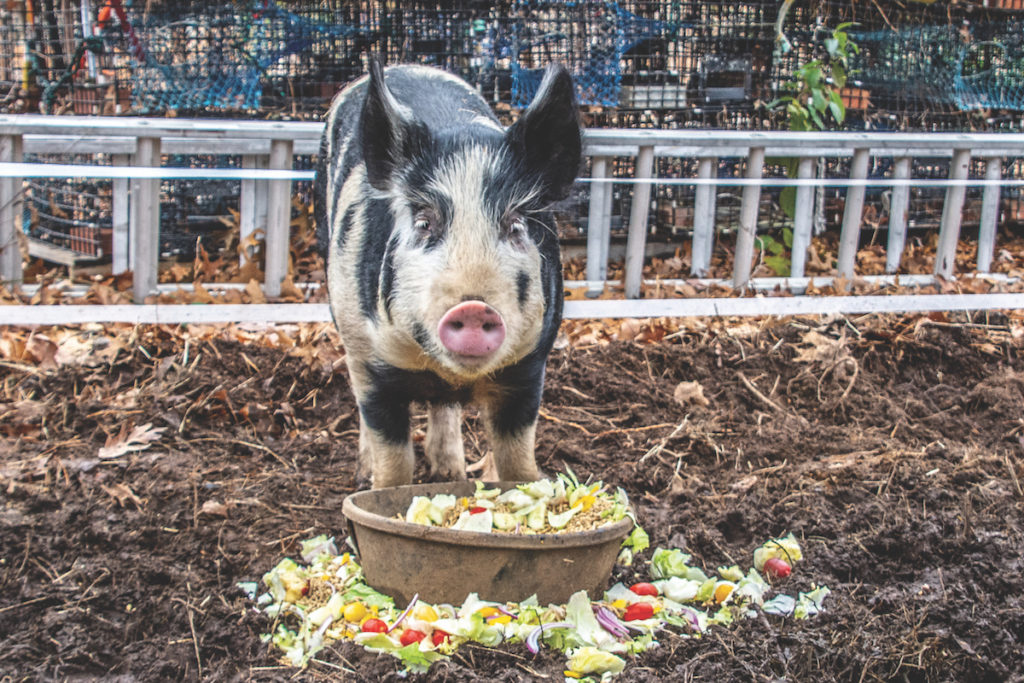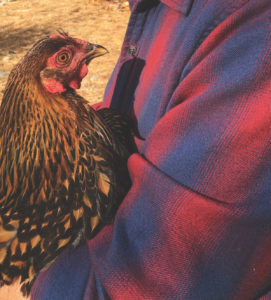
EASTHAM — The board of health wanted to tighten the town’s regulations on the keeping of noncommercial farm animals. But blowback from the public has made the board think again.
At a Dec. 9 workshop, the health board dropped from its proposal the suggested maximum numbers of animals that would be allowed, scrapped a list of prohibited animals, and agreed to exempt from permitting the keeping of 10 or fewer fowl and three or fewer rabbits.
Chair Joanne Buffington noted that the table of maximum numbers of animals in the draft proposal was one of the issues drawing the most comments at a Nov. 17 community meeting and in letters to the board.
The table had named limits of 10 chickens, ducks, geese, and rabbits; five turkeys; four goats, sheep, alpacas, and llamas; and two horses, donkeys, mules, pigs, cows, emus, and ostriches.
“That got a lot of reaction of ‘Why can I only have this many?’ ” said Buffington. “That’s not how we meant it.”
The board agreed to retain the draft language stating that the maximum number of animals of a particular type may depend on the size of the proposed area for keeping the animals, as well as on other factors determined by the animal inspector, health agent, or other agent authorized by the town. The determination would be based on the circumstances of each application to ensure that the keeping of animals does not result in a public nuisance or threat to health or the environment.
A proposed minimum lot size regulation would not apply to the keeping of animals that do not require permits, the board said.

Eastham resident Sadie Hill, who manages Brewster’s farmers market and has been working on developing regulations for a farmer’s market in Eastham, said that the proposed limits were a problem for many people.
“Obviously, you have to have the welfare of the animals in mind,” said Hill, “but it also needs to work for the people in Eastham and not hinder their ability to provide for their families.” She said her own family lives as self-sufficiently as possible. Eastham has historically hosted a large farming community, she noted.
“There’s plenty of people who get 40 chickens and have them for four months,” said Hill. “They slaughter them, they stick them in their freezer, and they’re done. That’s their meat for the year. When you have an animal regulation that says you can only have 10 chickens, and you already have laying hens, people are like, what?”
Hill, who teaches cheese making, said that limiting goats to four would not be enough animals to provide milk and cheese for a family.
She recently initiated a petition to put a right-to-farm bylaw on the Eastham town meeting warrant.
“A right-to-farm bylaw is a general bylaw that encourages the pursuit of agriculture, promotes agriculture-based economic opportunities, and protects farmlands within the community by allowing agricultural uses and related activities to function with minimal conflict with abutters and town agencies,” the petition states in part.
The petition is posted on change.org, where it had 270 of the 500 signatures needed as of Dec. 13. Greta Gilson was planning to gather signatures at the Eastham Superette on Dec. 16, said Hill.
Buffington said one letter writer questioned the proposal to prohibit roosters, cockerels, guinea hens, and peacocks completely, asking why the town wouldn’t want animals that control ticks. The writer also asked if the town was going to “come and dispatch the roosters.”
“I kind of agree with her,” said Buffington. “If we don’t have a problem yet, and some people have roosters that aren’t a problem, maybe we can wait until there is a problem.”
The board agreed to remove the list of prohibited animals, including peacocks — which board member Francie Williamson noted were “really, really irritating” — from the proposed regulations.
While some residents questioned a requirement that private wells be tested annually and suggested biannual testing instead, the board decided to leave the annual requirement in the draft.
“We recommend to all private well owners that they test once a year,” said Health Agent Jane Crowley. “If you don’t test your well, you have no idea what the water quality is.”
The earlier version of the regulations had raised concerns that a section stating animals shall be kept within secure fenced-in areas or enclosures meant horses couldn’t ever leave the fenced-in areas and chickens couldn’t be free-ranging.
“That seemed to be the issue at the meeting,” said board member Adele Blong. “They seemed to think we were saying [chickens] couldn’t come out of their coops.”
“There are exceptions that are obvious — like when you go take your horse out,” said Buffington.
The board agreed to drop the reference to fencing and enclosures and state instead that “all animals shall be maintained on the premises of the permit holder.”
The board is scheduled to vote on the final draft version at its Jan. 13, 2021 meeting. If approved, the revised proposal will be posted on the town’s website and a public hearing on the regulations will be scheduled.



